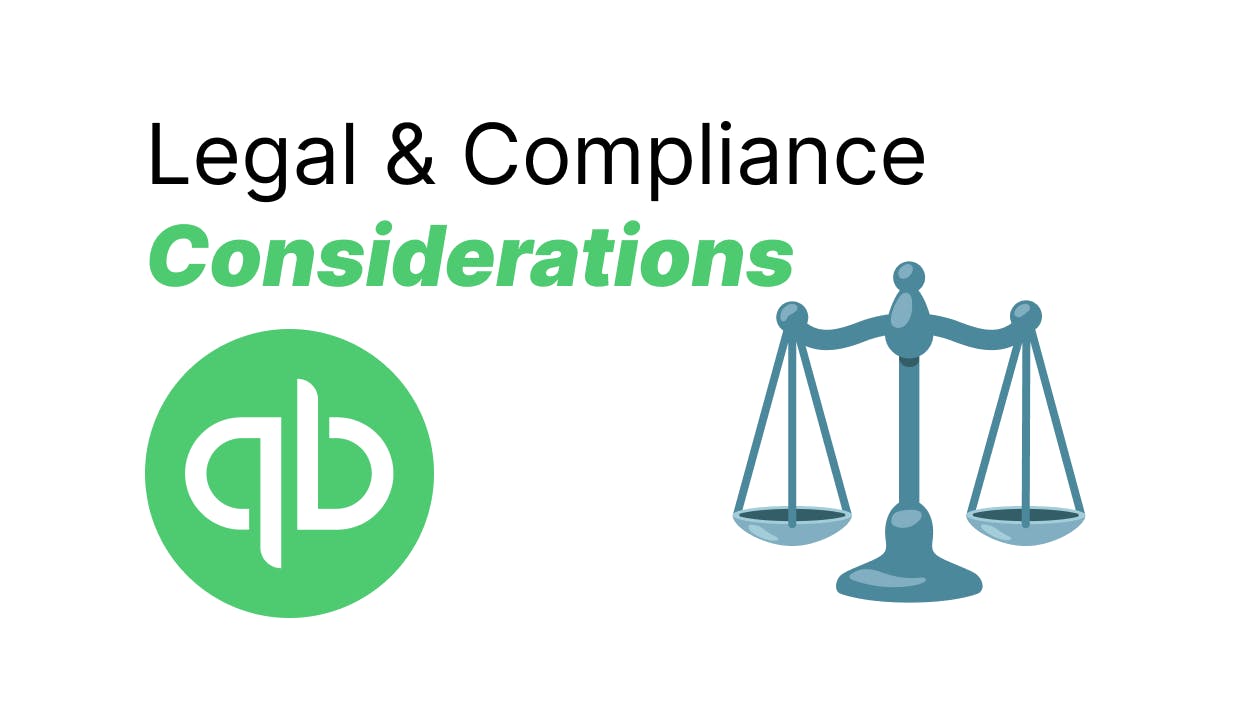
Legal and Compliance Considerations When Migrating Accounting Systems
Apart from personal preferences and ease of use, you must look at legal and compliance considerations when migrating accounting data.

In the wake of high-profile financial scandals like the FTX collapse, where inadequate accounting systems played a role, businesses are increasingly scrutinizing their financial management tools.
While enterprise resource planning (ERP) systems like NetSuite, SAP, or Sage Intacct offer robust solutions for large corporations, many businesses find themselves questioning whether such complex and expensive systems are necessary.
QuickBooks Online has emerged as a popular alternative, but when does it make sense to migrate from an ERP to QuickBooks?
Let's explore the legal and compliance considerations that should guide your decision.
Companies Using SAP and NetSuite
Before we dive into the considerations, let's look at some real-world examples of companies using these ERP systems:
SAP Users
- Coca-Cola Company: Uses SAP for its global operations management
- BMW Group: Relies on SAP for its complex manufacturing and supply chain processes
- Procter & Gamble: Utilizes SAP for its worldwide financial operations
- Siemens: Employs SAP for its diverse industrial businesses
NetSuite Users
- Lyft: Uses NetSuite for financial management and reporting
- Groupon: Relies on NetSuite for its global financial operations
- Roku: Employs NetSuite for its financial and operational management
- DocuSign: Utilizes NetSuite for its cloud-based financial processes
These companies typically have complex, multi-national operations, extensive reporting requirements, and need for advanced features that justify the use of these comprehensive ERP systems. However, for many smaller or less complex businesses, such robust systems might be overkill.
Data Retention Requirements
One of the primary considerations when migrating accounting systems is ensuring compliance with data retention laws. Different industries and jurisdictions have varying requirements for how long financial records must be kept.
- QuickBooks Advantage: QuickBooks Online automatically retains data for 7 years, which satisfies most standard business record-keeping requirements in the US. For businesses without complex, long-term data retention needs, this built-in feature can simplify compliance.
- ERP Consideration: If your industry requires data retention beyond 7 years (e.g., certain government contractors or highly regulated industries), you may need to implement additional archiving solutions when using QuickBooks.
Real-world example: A mid-sized manufacturing company found that QuickBooks Online's 7-year retention policy met their needs perfectly, allowing them to simplify their IT infrastructure by moving away from a costly ERP system that required manual archiving processes.
Audit Implications
The ability to withstand rigorous audits is crucial for any accounting system. Your choice of financial software can significantly impact the audit process.
- QuickBooks Advantage: QuickBooks Online offers robust audit trail features, tracking all changes made to transactions. This can be sufficient for many small to medium-sized businesses undergoing routine audits.
- ERP Consideration: For public companies or those in highly regulated industries requiring more complex audit procedures, the advanced audit trail and segregation of duties features in ERPs might still be necessary.
Real-world example: A growing tech startup transitioning from ERP to QuickBooks Online found that the platform's audit trail capabilities were more than adequate for their annual financial audits, saving them considerable time and money in the process.
Industry-Specific Regulations
Different industries face unique regulatory requirements that can influence the choice of accounting software.
- QuickBooks Advantage: QuickBooks Online offers industry-specific versions and integrations that can handle regulations for many sectors, including construction, nonprofits, and professional services.
- ERP Consideration: Highly regulated industries like healthcare (HIPAA compliance) or defense contracting (DFARS compliance) may require the more extensive customization and security features typically found in ERPs.
Real-world example: A mid-sized nonprofit organization successfully migrated from a complex ERP to QuickBooks Online, finding that it offered all the necessary features to comply with non-profit accounting standards while significantly reducing their software costs.
When Does Migrating to QuickBooks Online Make Sense?
Considering these factors, migrating from an ERP to QuickBooks Online might make sense when:
- Your data retention needs align with QuickBooks' 7-year policy.
- Your audit requirements are straightforward and don't require complex segregation of duties.
- Your industry-specific regulations can be met through QuickBooks' features or available integrations.
- You're a small to medium-sized business looking to reduce IT costs and complexity.
- You don't require the extensive customization or multi-entity consolidation features of an ERP.
Conclusion
While the FTX scandal highlighted the dangers of inadequate financial systems, it's equally important not to overcompensate with unnecessarily complex solutions.
For many businesses, QuickBooks Online offers a sweet spot of functionality, compliance, and cost-effectiveness.
However, the decision to migrate should always be made after careful consideration of your specific legal and compliance needs.
Remember, the goal is to have an accounting system that ensures accuracy, transparency, and compliance – whether that's achieved through an ERP or a solution like QuickBooks Online depends on your unique business requirements.
While large multinational corporations like Coca-Cola or BMW may require the extensive capabilities of SAP, and rapidly growing tech companies like Lyft or Roku benefit from NetSuite's scalability, many businesses can thrive with the more streamlined approach offered by QuickBooks Online.
